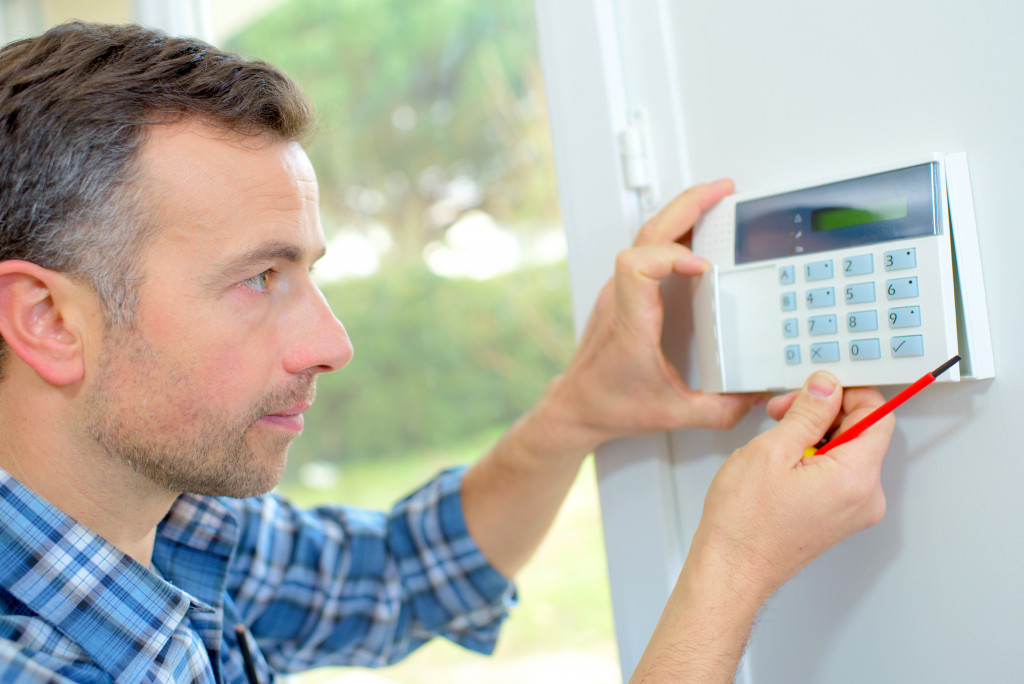Every day, we take for granted the many things that make our lives easier and safer. We turn on a light switch and expect the room to be illuminated. We flush a toilet and expect the water to disappear down the drain. We go about our business without a second thought, confident that these everyday activities are safe and reliable.
But what about the things we don’t think about? What about the hazards that can cause significant danger and harm to ourselves and our loved ones? Even at home, many potential dangers are lurking in the shadows-from electrical outlets, to slippery stairs, to faulty fire escapes.
To create a safe environment for you and your family members, it is essential to be aware of these potential dangers and to take steps to prevent them.
Here are ten tips that you can use to help identify and prevent hazards in your home:
1. Check Your Electrical Outlets
Many home fires are caused by faulty or overloaded electrical outlets. Before plugging in any appliance or device, check that the outlet is not damaged and that the cord isn’t frayed. If you find any issues with your outlets, contact a professional electrician right away to have them repaired or replaced.
2. Be Aware of Your Surroundings
It is easy to become distracted while performing routine household tasks. However, it is important to always remain focused and aware of what’s going on around you. For example, before carrying a heavy load up or down the stairs, make sure that there are no obstacles in your path and that the stairs are dry and free of any slippery substances.

3. Inspect Your Home’s Exterior
If you have a deck, porch, or balcony, regularly check to ensure that the railings are secure and in good condition. If you have any loose boards, replace them immediately. Also, inspect your gutters and downspouts to ensure that they are firmly attached. If you notice any broken or damaged pieces, have them replaced as soon as possible.
4. Install Reliable Security Doors
Security doors can help to keep your home safe from intruders and prevent break-ins. Investing in strong and decorative security doors will not only give your home an extra layer of protection but can also add to its curb appeal. So, it’s a win-win situation!
5. Get to Know Your Home’s Fire Escape Route
In the event of a fire, it is essential to have a well-planned escape route. Familiarize yourself with all the exits in your home and make sure that everyone in your family knows where they are. In addition, keep a fire extinguisher on each floor of your home, and make sure that you know how to use it.
6. Keep Your Home Well-Ventilated
Proper ventilation is critical in preventing the buildup of harmful fumes and gases. For instance, in the kitchen, make sure to turn on the exhaust fan when cooking. And in the laundry room, be sure to open a window when using the dryer. By taking these simple precautions, you can help to keep your home safe and healthy.

7. Check That the Stairs are Free of Tripping Hazards
Even a tiny object left on the floor can be dangerous if you trip over it. Make sure that all of your stairways are clear, dry, and free of clutter at all times to reduce the risk of falls or other accidents around the house.
8. Protect Your Pets
Many common household products, such as cleaning supplies and medications, are highly toxic to animals. To keep your pets safe from poisoning or other hazards, make sure that all bottles and packages are clearly labeled and store them where your pets can’t reach them. Additionally, lock up any dangerous items you aren’t using so your curious furry friend doesn’t get into trouble.
9. Keep an Eye on Young Children
If you have young children in your home, it is essential to take extra precautions to keep them safe. For example, install child-proof locks on all of the doors and cabinets in your home. In addition, ensure that all household chemicals are stored out of reach and that any sharp or fragile objects are kept out of their sight.
10. Regularly Test Your Smoke and Carbon Monoxide Detectors
Working smoke and carbon monoxide detectors are essential for any home. Be sure to test them monthly, and replace the batteries at least once a year. In the event of a fire or gas leak, these detectors could save your life, so it’s essential to make sure that they are in good working condition.
Following these simple tips can help keep your home safe for you and your family. By taking a few extra precautions, you can rest assured knowing that your loved ones are protected from potential hazards.

